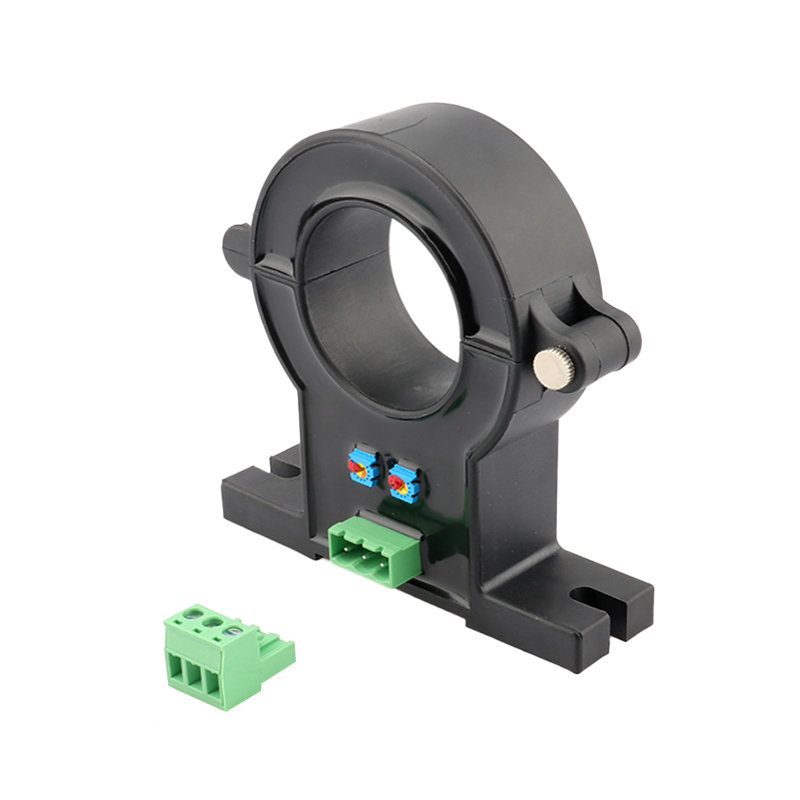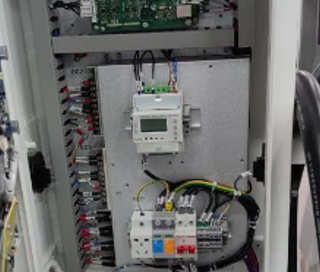
Basic Knowledge of EV Charger Metering
By bluejay | Company News
Table of Contents
How can electric vehicle charging station (EVCS) providers ensure accurate billing for AC and DC charging stations? Electric vehicle charging service providers (CPOs) ensure billing accuracy by installing legally certified energy meters (e.g., energy meters meeting MID Class B/C accuracy standards) after the energy conversion process. In AC EVCSs, the AC meters measure the AC active energy at the input; in DC EVCSs, the DC meters measure the DC energy at the converter output. This metering strategy is crucial for achieving legal and transparent commercial settlements, while also necessitating tamper-proofing and data traceability.

What Is EV Charger Metering?
EV charger metering, also called ev charger meter, refers to the energy metering of electric vehicle charging stations (EVSE) during the charging process, which ensures the accuracy and reliability of energy metering data. As an important component of EV charger metering, the electric vehicle charging pile must be installed with an energy meter that meets national metering standards. Usually, an AC or DC electric vehicle charging meter is set up inside the EV charging pile. It monitors and measures the energy & power consumption of each charging gun in real-time. Take a dual-gun EV charger as an example, it may install one dual-channel energy meter or two electric meters.
Types of EV Charger Meters
Metering for Electric Vehicle Charging Stations (EVCS) is categorized by the type of power delivered: AC (Alternating Current) metering for slower charging, and DC (Direct Current) metering for fast charging.
EV charging meter types AC Meter DC Meter Definition AC meters are primarily used for Level 2 AC charging stations, which typically range from 3 kW to 22 kW. DC meters are essential for DC Fast Chargers (DCFC), which require specialized high-voltage and high-current measurement capabilities. Meter Types Single-phase and three-phase DIN rail energy meters Single-channel DC energy meters, Dual-channel energy meters, or DC meters with integrated shunt Current Ratings Common ratings include 45A, 63A, 65A, 80A, and 100A. Available in high-current ratings such as 150A, 200A, 300A, 400A, 600A, and 650A. Applications These meters are suitable for the full range of Level 2 chargers, including common residential and commercial units rated at 3 kW, 7 kW, 15 kW, and up to 22 kW (the general upper limit for AC EVCS). All DC EV Charging Stations Other Some AC meters support Bidirectional Measurement Voltage: DC meters are designed to handle high-voltage requirements, typically supporting a maximum voltage of 1000V DC.
Shunt Integration: Shunt resistors are frequently used for current measurement accuracy. Common voltage drop options for these external shunts include 75mV, 60mV, 50mV, and 45mV.
Line Loss Compensation: Adjusting the metered value for energy lost in the long charging cables.
Bidirectional Measurement: Supporting V2G (Vehicle-to-Grid) applications by accurately measuring both energy drawn from and fed back to the grid.
How Does EV charging Metering Work?
In the electric vehicle charging system, the EV charging pile communicates with the vehicle battery management system (BMS) to convert the three-phase AC input power into the DC power required by the BMS. A DC energy meter is connected to the output side of the DC bus to measure the output power. The charging management controller reads the power data of the DC energy meter and controls the DC charging output. The electric meter for EV charger can be configured with a DC current shunt or a Hall Effect Current Sensor to measure the charging power.

The DC energy meter for EV charger can be connected to the main control of the EV charging pile by RS485 communication. The main control can read the meter information and monitor the charging status according to user needs. The DC energy meter charging detection software can intuitively display electric vehicles’ voltage, current, power, and power during fast charging at DC charging stations, which is convenient for querying various data and viewing abnormal situation records.
EV Charging Metering Standards
Power meter for ev charging should comply with relevant national and regional measurement standards to ensure the accuracy and reliability of measurement data. At present, the internationally used EV charging metering standards include:
IEC 61850-2010: substation automation systems communication protocols
IEC 62196: plugs and socket outlets for EV charging
German Eichrecht: applies to electricity meters on EV charging stations
MID: Many European countries require charging stations used for public billing purposes to be equipped with MID-certified energy meters to ensure accurate billing. The MID standard is currently widely used in AC charging stations.

In addition, the accuracy standards for the electric vehicle charging meter vary from country to country. The EV charging metering accuracy standard refers to the accuracy requirements that EV charging piles should meet when measuring electricity. Here are some common standards in the following:
1. China’s national standard “Technical Specifications for Measurement of Electric Vehicle Charging Facilities” (GB/T 18487.12015) stipulates that the measurement accuracy of EV charging piles should meet the following requirements:
DC power meter accuracy: 0.2%;
AC power meter accuracy: 0.2%.
2. The US national standard “Charging Measurement Standard” (SAE J17722019) stipulates that the measurement accuracy of charging piles should meet the following requirements:
DC power meter accuracy: 0.1%;
AC power meter accuracy: 0.2%.
3. The European standard “Electric Vehicle Charging Equipment Measurement and Test Specification” (IEC 618511:2017) stipulates that the measurement accuracy of charging piles should meet the following requirements:
DC power meter accuracy: +0.5%:
AC power meter accuracy: 1%
4. IMD requirements for measuring accuracy:
AC energy meter accuracy 1% DC energy meter accuracy 0.5%
It should be noted that the standards of different countries and regions may differ, and the specific requirements should be based on the relevant local standards.
Blue Jay Energy Metering for Electric Vehicle (EV) Charging Stations
DC EV Charging Metering for Dual Channel EV Chargers
Blue Jay offers a variety of solutions on the EV metering side with varying degrees of measurement depending on your energy management needs.
For example, if you need EV metering in a dual-gun EV charger, we can offer a dual-channel DC energy meter to measure energy separately in each of the chargers.
This solution can replace two DC energy meters for EV charger metering. Thus, you can save a lot of costs.

Submetering for EV Charging Stations
The National Renewable Energy Laboratory (NREL) uses multi-channel energy meters to monitor the electricity consumption of each of the 128 Level 2 electric vehicle charging stations (i.e., single-phase 240V AC charging stations) on its campus. This not only allows real-time monitoring of each station’s energy usage, but also allows for separate monitoring of station usage from building usage. Because each EVSE requires separate energy metering, the company employed the eGauge Systems EG4130 meter, which can simultaneously monitor 12 independent current loops via 12 current CT inputs. Eleven EG4130 meters are required to independently meter each of the 128 Level 2 charging stations.
Replacing the eGauge single-loop metering solution with Blue Jay’s MCM263T multi-channel meter would require NREL to install only eight meters, connected to one or more RS-485 Modbus RTU buses. This simplifies wiring, centralizes data collection, and reduces maintenance costs. In summary, using the Blue Jay MCM263T multi-channel meter, NREL can monitor the metering of 128 independent circuits with 8 devices, significantly improving the simplicity of the distribution cabinet, reducing installation costs, and simplifying the data architecture, while fully meeting all of its requirements for data accuracy and system integration.
Related Products
Tags
Company News
How can electric vehicle charging station (EVCS) providers ensure accurate billing for AC and DC charging stations? Electric vehicle charging service providers (CPOs) ensure billing accuracy by installing legally certified energy meters (e.g., energy meters meeting MID Class B/C accuracy standards) after the energy conversion process. In AC EVCSs, the AC meters measure the AC active energy at the input; in DC EVCSs, the DC meters measure the DC energy at the converter output. This metering strategy is crucial for achieving legal and transparent commercial settlements, while also necessitating tamper-proofing and data traceability.
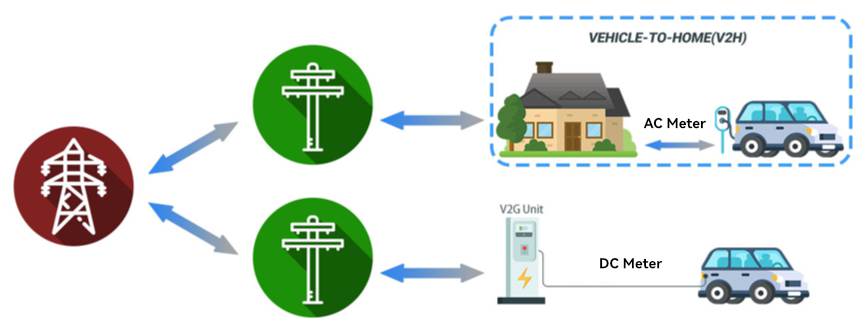
What Is EV Charger Metering?
EV charger metering, also called ev charger meter, refers to the energy metering of electric vehicle charging stations (EVSE) during the charging process, which ensures the accuracy and reliability of energy metering data. As an important component of EV charger metering, the electric vehicle charging pile must be installed with an energy meter that meets national metering standards. Usually, an AC or DC electric vehicle charging meter is set up inside the EV charging pile. It monitors and measures the energy & power consumption of each charging gun in real-time. Take a dual-gun EV charger as an example, it may install one dual-channel energy meter or two electric meters.
Types of EV Charger Meters
Metering for Electric Vehicle Charging Stations (EVCS) is categorized by the type of power delivered: AC (Alternating Current) metering for slower charging, and DC (Direct Current) metering for fast charging.
| EV charging meter types | AC Meter | DC Meter |
| Definition | AC meters are primarily used for Level 2 AC charging stations, which typically range from 3 kW to 22 kW. | DC meters are essential for DC Fast Chargers (DCFC), which require specialized high-voltage and high-current measurement capabilities. |
| Meter Types | Single-phase and three-phase DIN rail energy meters | Single-channel DC energy meters, Dual-channel energy meters, or DC meters with integrated shunt |
| Current Ratings | Common ratings include 45A, 63A, 65A, 80A, and 100A. | Available in high-current ratings such as 150A, 200A, 300A, 400A, 600A, and 650A. |
| Applications | These meters are suitable for the full range of Level 2 chargers, including common residential and commercial units rated at 3 kW, 7 kW, 15 kW, and up to 22 kW (the general upper limit for AC EVCS). | All DC EV Charging Stations |
| Other | Some AC meters support Bidirectional Measurement | Voltage: DC meters are designed to handle high-voltage requirements, typically supporting a maximum voltage of 1000V DC. Shunt Integration: Shunt resistors are frequently used for current measurement accuracy. Common voltage drop options for these external shunts include 75mV, 60mV, 50mV, and 45mV. Line Loss Compensation: Adjusting the metered value for energy lost in the long charging cables. Bidirectional Measurement: Supporting V2G (Vehicle-to-Grid) applications by accurately measuring both energy drawn from and fed back to the grid. |
How Does EV charging Metering Work?
In the electric vehicle charging system, the EV charging pile communicates with the vehicle battery management system (BMS) to convert the three-phase AC input power into the DC power required by the BMS. A DC energy meter is connected to the output side of the DC bus to measure the output power. The charging management controller reads the power data of the DC energy meter and controls the DC charging output. The electric meter for EV charger can be configured with a DC current shunt or a Hall Effect Current Sensor to measure the charging power.

The DC energy meter for EV charger can be connected to the main control of the EV charging pile by RS485 communication. The main control can read the meter information and monitor the charging status according to user needs. The DC energy meter charging detection software can intuitively display electric vehicles’ voltage, current, power, and power during fast charging at DC charging stations, which is convenient for querying various data and viewing abnormal situation records.
EV Charging Metering Standards
Power meter for ev charging should comply with relevant national and regional measurement standards to ensure the accuracy and reliability of measurement data. At present, the internationally used EV charging metering standards include:
IEC 61850-2010: substation automation systems communication protocols
IEC 62196: plugs and socket outlets for EV charging
German Eichrecht: applies to electricity meters on EV charging stations
MID: Many European countries require charging stations used for public billing purposes to be equipped with MID-certified energy meters to ensure accurate billing. The MID standard is currently widely used in AC charging stations.

In addition, the accuracy standards for the electric vehicle charging meter vary from country to country. The EV charging metering accuracy standard refers to the accuracy requirements that EV charging piles should meet when measuring electricity. Here are some common standards in the following:
1. China’s national standard “Technical Specifications for Measurement of Electric Vehicle Charging Facilities” (GB/T 18487.12015) stipulates that the measurement accuracy of EV charging piles should meet the following requirements:
DC power meter accuracy: 0.2%;
AC power meter accuracy: 0.2%.
2. The US national standard “Charging Measurement Standard” (SAE J17722019) stipulates that the measurement accuracy of charging piles should meet the following requirements:
DC power meter accuracy: 0.1%;
AC power meter accuracy: 0.2%.
3. The European standard “Electric Vehicle Charging Equipment Measurement and Test Specification” (IEC 618511:2017) stipulates that the measurement accuracy of charging piles should meet the following requirements:
DC power meter accuracy: +0.5%:
AC power meter accuracy: 1%
4. IMD requirements for measuring accuracy:
AC energy meter accuracy 1% DC energy meter accuracy 0.5%
It should be noted that the standards of different countries and regions may differ, and the specific requirements should be based on the relevant local standards.
Blue Jay Energy Metering for Electric Vehicle (EV) Charging Stations
DC EV Charging Metering for Dual Channel EV Chargers
Blue Jay offers a variety of solutions on the EV metering side with varying degrees of measurement depending on your energy management needs.
For example, if you need EV metering in a dual-gun EV charger, we can offer a dual-channel DC energy meter to measure energy separately in each of the chargers.
This solution can replace two DC energy meters for EV charger metering. Thus, you can save a lot of costs.

Submetering for EV Charging Stations
The National Renewable Energy Laboratory (NREL) uses multi-channel energy meters to monitor the electricity consumption of each of the 128 Level 2 electric vehicle charging stations (i.e., single-phase 240V AC charging stations) on its campus. This not only allows real-time monitoring of each station’s energy usage, but also allows for separate monitoring of station usage from building usage. Because each EVSE requires separate energy metering, the company employed the eGauge Systems EG4130 meter, which can simultaneously monitor 12 independent current loops via 12 current CT inputs. Eleven EG4130 meters are required to independently meter each of the 128 Level 2 charging stations.
Replacing the eGauge single-loop metering solution with Blue Jay’s MCM263T multi-channel meter would require NREL to install only eight meters, connected to one or more RS-485 Modbus RTU buses. This simplifies wiring, centralizes data collection, and reduces maintenance costs. In summary, using the Blue Jay MCM263T multi-channel meter, NREL can monitor the metering of 128 independent circuits with 8 devices, significantly improving the simplicity of the distribution cabinet, reducing installation costs, and simplifying the data architecture, while fully meeting all of its requirements for data accuracy and system integration.


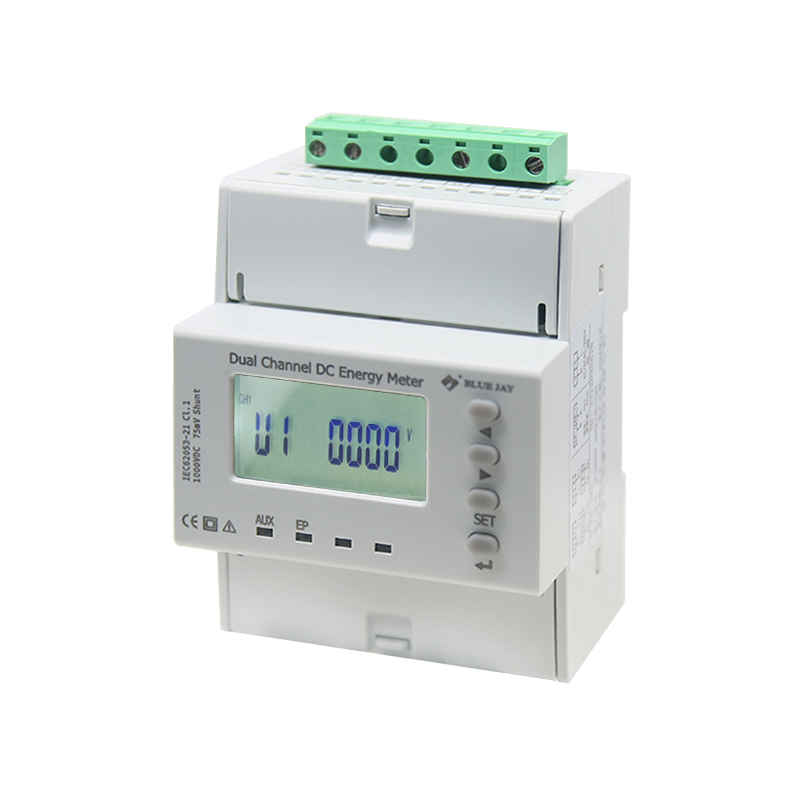
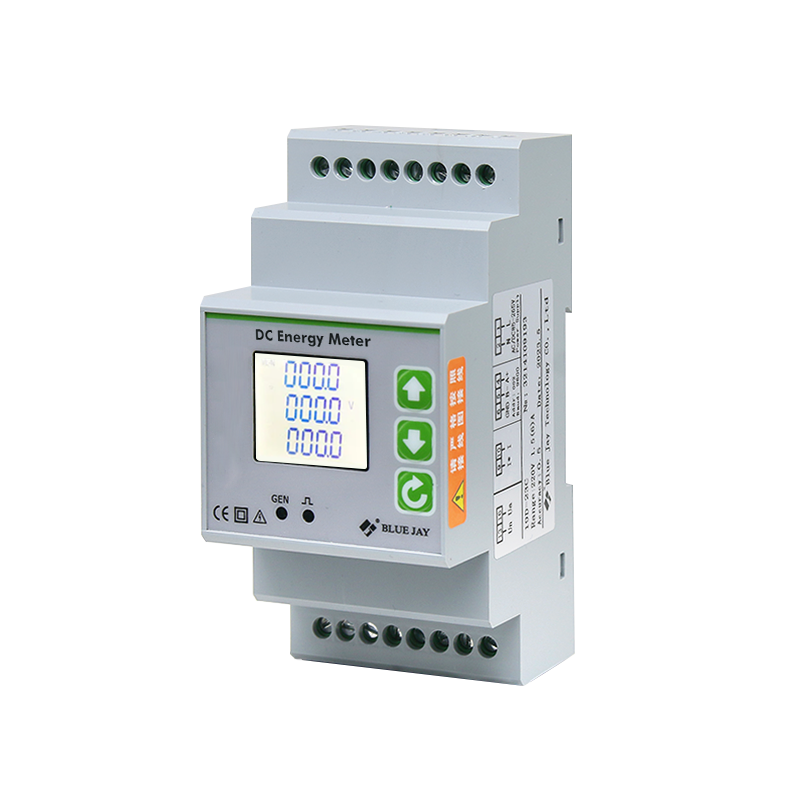
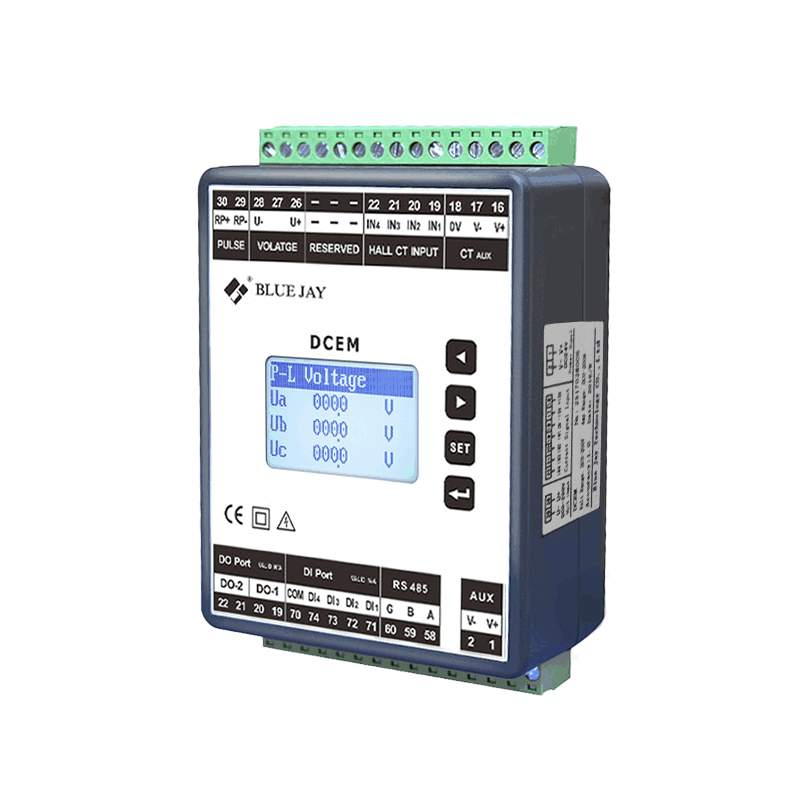
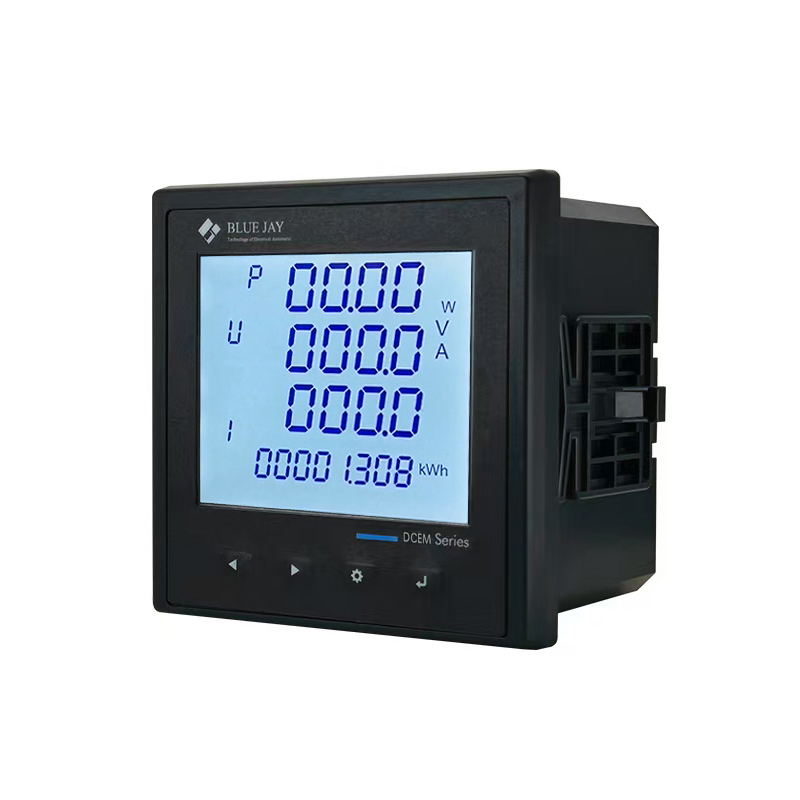
-1.jpg)
